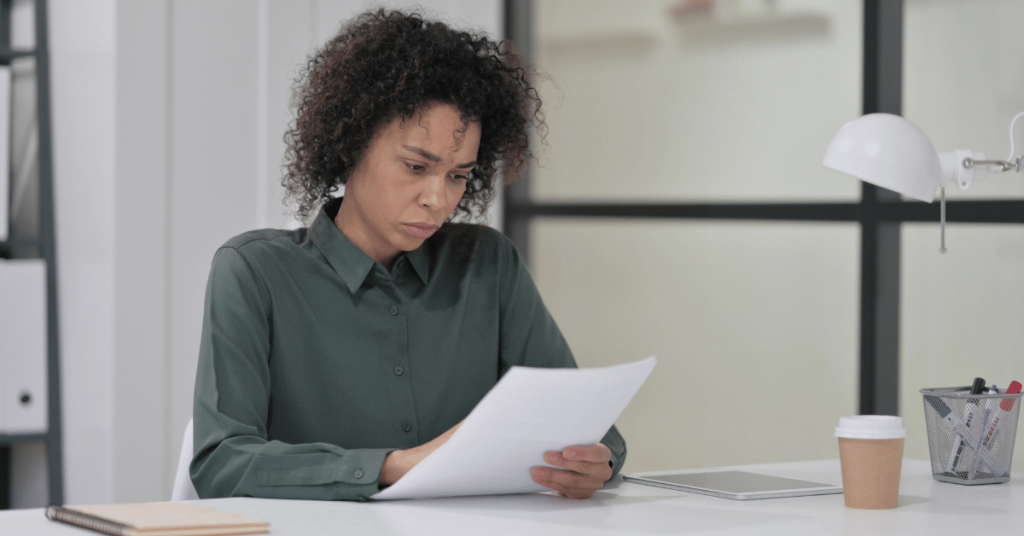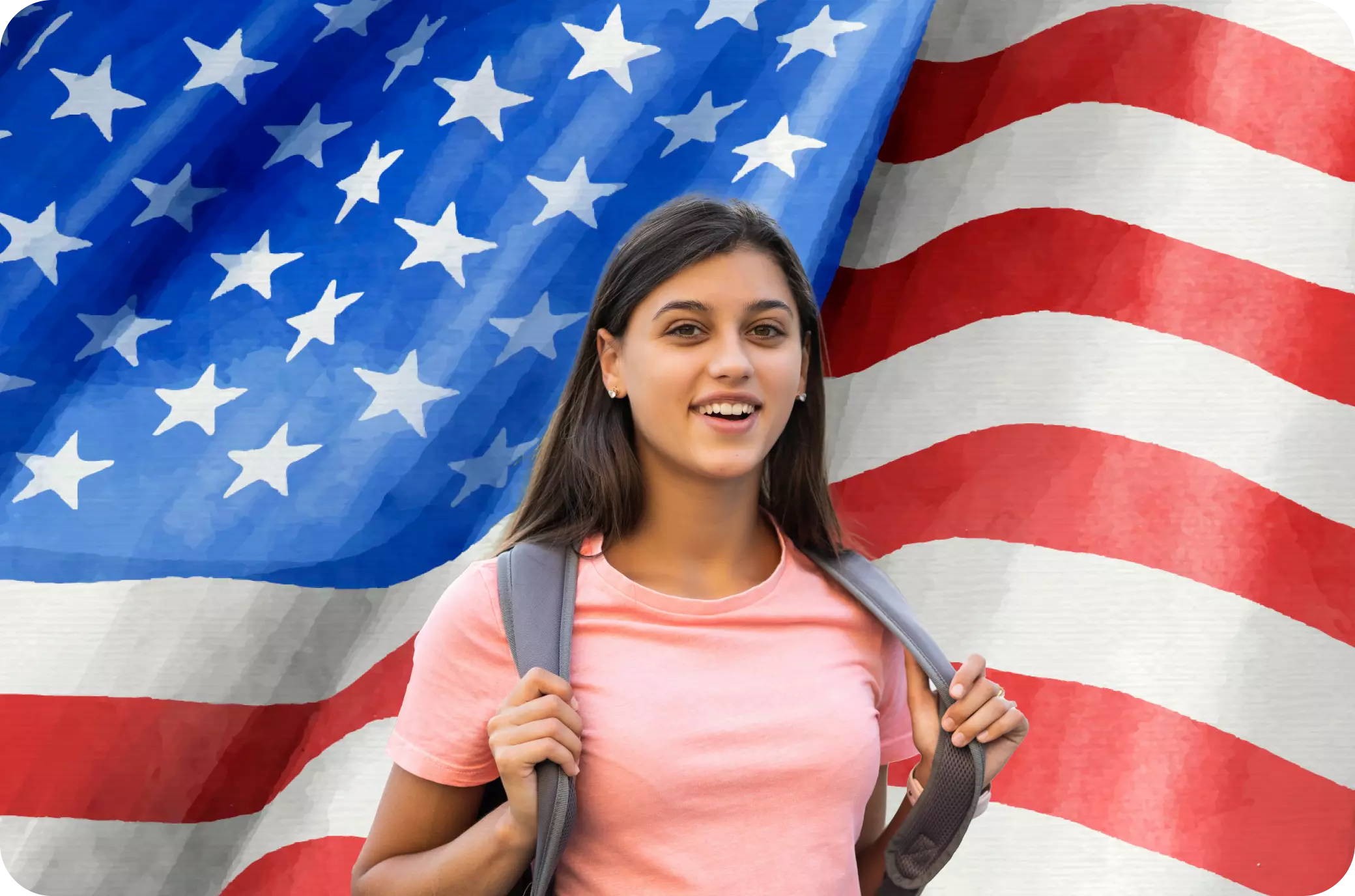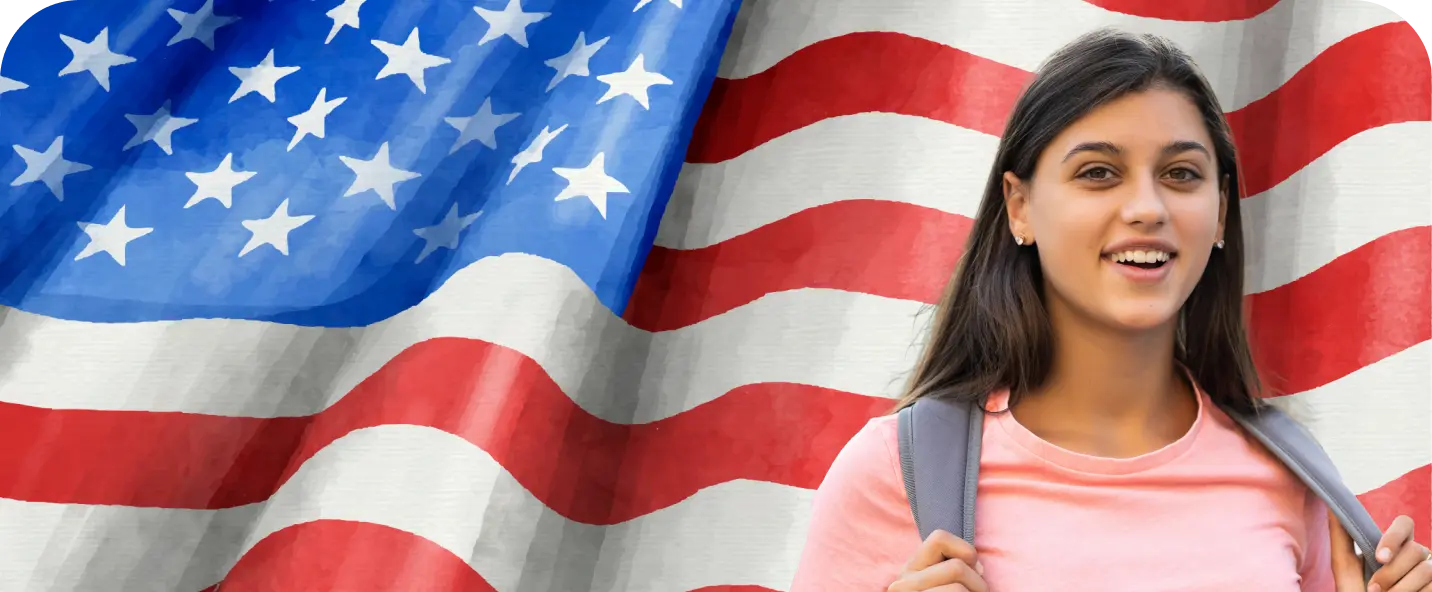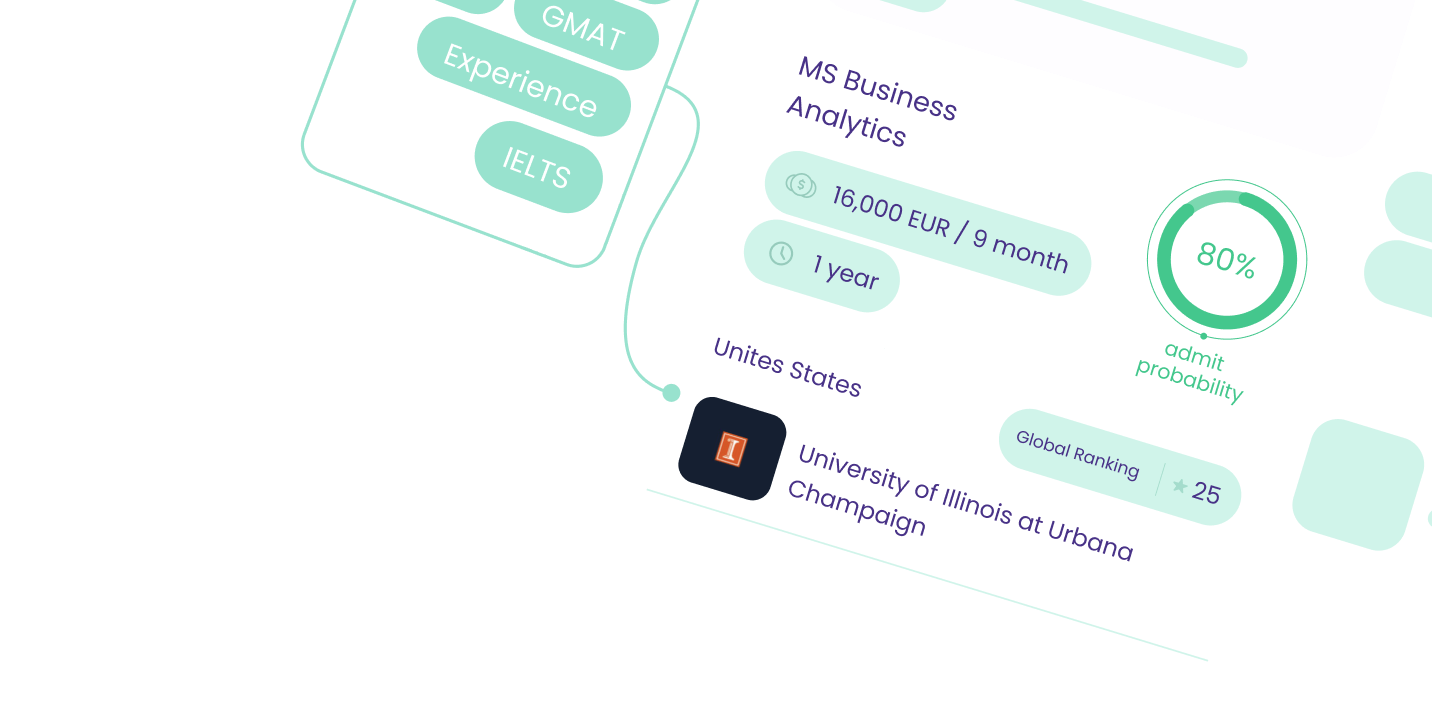Embarking on a thrilling educational adventure in the United States is a dream cherished by countless aspiring students from around the globe.
However, before their dreams can take flight, there lies a pivotal juncture on their journey: the US student visa interview. It’s a nerve-wracking yet exhilarating moment that holds the key to unlocking the doors of opportunity and paving the way to academic success in the land of stars and stripes.
The US student visa interview holds immense significance as it allows immigration officials to assess the applicant’s eligibility, intentions, and suitability for studying in the US. It is a chance for students to demonstrate their genuine passion for education, their commitment to abiding by the rules and regulations of the visa, and their readiness to contribute positively to the academic community.
Being prepared and confident during the interview process is of utmost importance. Thorough preparation equips applicants with the knowledge and confidence to navigate the interview effectively. By demonstrating preparedness, applicants can inspire confidence in the consular officer, increasing their chances of securing a US student visa.
We have prepared a list of 15 questions through which applicants can enhance their prospects of obtaining a US student visa and embarking on an enriching academic journey in the United States.
The US Student Visa interview Process

- The US embassy or consulate in the applicant’s country will host the interview for a student visa.
- The applicant and consular official interact face-to-face.
- The interview aims to confirm the integrity of the data presented on the visa application.
- Specific questions may be requested to verify the applicant’s identity, educational history, and financial situation.
- The interview evaluates the applicant’s qualifications, academic preparedness, financial stability, and general appropriateness for a US student visa.
- It contributes to safeguarding the integrity of the US educational system by ensuring that only genuine and deserving students are granted visas.
- The applicant’s objectives and probable compliance with the student visa requirements are also assessed during the interview.
- Officers at the consulate try to ascertain whether the applicant plans to follow their declared course of study and has the money to maintain themselves.
- They determine if the candidate is motivated to return home after completing their education.
- The interview is crucial in determining whether a visa will be granted.
- It enables consular officials to judge the applicant’s honesty, motivation, and reliability.
- Evaluations are made on the applicant’s writing abilities, purposefulness, academic readiness, and supporting materials.
- The ultimate decision on whether to issue an applicant a US student visa heavily relies on the interview.
- Candidates should approach the interview with assurance, sincerity, and a sincere love for their chosen academic subject.
- Although the interview might be nerve-wracking, its goal is to ensure qualified candidates get the chance to pursue their academic objectives in the US.
- Applicants can effectively prepare themselves for a favourable outcome by knowing the goal and relevance of the interview.
Importance of Preparing for the Interview

An essential first step in improving your chances of success is a thorough preparation for the US student visa interview. It involves more than just collecting the required paperwork and filling out forms. Here, we emphasise the value of careful planning and how doing so may increase your self-assurance and raise the likelihood that your visa application will be approved.
1. Demonstrating Commitment
Spending the time to prepare for the interview adequately shows that you are committed to and serious about your plans to study in the United States. The consular officer will get the strong impression that you have put in the time and effort to grasp the procedure and are entirely devoted to achieving your educational objectives.
2. Building Confidence
Being well-prepared gives you the knowledge and insights to navigate the interview comfortably. Knowledge is power. Gaining confidence in your replies and demonstrating your sincere interest in your chosen field of study will come from having a thorough understanding of the visa criteria, the educational institution you want to attend, and the course you wish to follow.
3. Anticipating Questions
A thorough preparation allows you to anticipate and respond to interview questions that could come up. You may prepare succinct, clear responses that convey your objectives, aspirations, and fitness for a US student visa by researching and practising typical interview questions.
4. Addressing Concerns
The consular officer will primarily assess your eligibility and purpose for studying in the US. Being ready helps you address any possible worries they may have, such as your capacity to pay for your education, your plans for returning home after your studies, or any links you may have to your home country that ensure your leave is temporary.
5. Enhancing Communication Skills
A thorough preparation can help you become more eloquent and confident in your communication throughout the interview. You may better organise your thoughts, utilise proper language, and communicate your views by practising your answers to frequently asked questions.
6. Highlighting Cultural Awareness
The consular officer may be impressed if you show that you are aware of cultural distinctions and are aware of those between the United States and your own country. With careful planning, you may demonstrate your familiarity with American culture, traditions, and values while demonstrating your capacity to adjust to and succeed in a varied academic environment.
Essential Questions for US Student Visa Interview in 2023

You should familiarise yourself with typical interview questions as you get ready for the 2023 US student visa interview. Here is a list of crucial inquiries to think about, albeit the precise inquiries may change:
Q1. Why did you decide to pursue your education here?
The interview aims to learn more about the factors that led to your decision to study abroad in the US. Whether they have to do with the level of instruction, particular job chances in your sector of interest, or a desire to immerse oneself in another culture fully, they are extremely interested in your unique driving reasons.
Q2. You choose that particular institution or university for what reasons?
The interviewer is curious about why you selected a specific college for your studies. They are interested in your research, what drew you to the school or organisation, and how it aligns with your professional and personal goals.
Q3. Please provide additional information about the course you wish to take
The interviewer wants to learn more about the course or programme you wish to register for; therefore, they ask questions about it. They are interested in your course of study, the courses you will be taking, and how your knowledge and skills in your chosen career will grow as a result.
Q4. You choose that particular institution or university for what reasons?
The interviewer is curious as to why you selected a specific college for your studies. They are interested in your research, what drew you to the school or organisation, and how it aligns with your professional and personal goals.
Q5. Please provide additional information about the course you wish to take
The interviewer wants to learn more about the course or programme you wish to register for. Therefore they ask questions about it. They are interested in your course of study, the courses you will be taking, and how your knowledge and skills in your chosen career will grow as a result.
Q6. You choose that particular institution or university for what reasons?
The interviewer is curious as to why you selected a specific college for your studies. They are interested in your research, what drew you to the school or organisation, and how it aligns with your professional and personal goals.
The interviewer wants to learn more about the course or programme you wish to register for; therefore, they ask questions about it. They are interested in your course of study, the courses you will be taking, and how your knowledge and skills in your chosen career will grow as a result.
Q7. How does the course of study you have chosen fit into your plans?
The interviewer is curious to know how your field of study and long-term objectives link. They want to know how your time spent studying in the US will further your career and make an impact on your field of study.
Q8. How does the academic path you’ve selected fit into your long-term goals?
The interviewer is interested in learning how your area of study and long-term goals relate. How your time spent studying in the US will advance your career and have an effect on your field of study is what they are most interested in learning.
Q9. How will you pay for your schooling and a place to live in the country?
Having enough money is essential if you want to study abroad. Your interviewer wants to make sure you have a strategy in place for paying for both your living expenses and your schooling. They could inquire about your savings, sponsorships, or other prospective financial resources.
Q10. What connections do you have to your nation of origin that will guarantee your return after your studies are finished?
If you intend to return home after finishing your study in the United States, the interviewer is curious. They are searching for proof of your relationships with individuals who may urge you to return, such as family, career opportunities, or engagement in the community.
Q11. Have you been awarded any grants or scholarships for your studies?
This inquiry determines whether you have earned awards for academic success or financial aid for your education. The interviewer tries to determine how committed you are and how much help you have gotten.
Q12. How does your educational background compare to the study area you’ve chosen?
The interviewer is interested in learning how your academic experiences helped you prepare for your chosen field of study. They want to know how your academic experience has given you the groundwork you need to flourish in your coursework.
Q13. What analysis have you made of the college or institution you are applying to?
The interviewer wants to gauge how prepared you are and how interested you are in the university you have selected. They want to know if you have looked into the school, its programmes, professors, resources, and any noteworthy accomplishments.
Q14. How do you intend to manage the social and intellectual obstacles of studying abroad?
The interviewer assesses your capacity for adaptation and your capacity for problem-solving. They want to know how you handle school pressures while adjusting to a different social and cultural milieu.
Q15. What is your knowledge of the cultural distinctions between the United States and your place of origin?
Your capacity to manage and embrace cultural differences will be evaluated throughout the interview. They want to know how well you understand the distinctive features of American society and how you plan to fit in.
Q16. Have you ever been to the United States? If so, why did you come if you did?
If you have, the interviewer wants to know why you previously visited the United States. They want to know if your prior interactions with the nation affected your decision to continue your education there.
Q17. What activities do you have planned for your off-campus vacations or holidays?
The interviewer is curious to learn how you plan to spend your free time during breaks from your academic pursuits or holidays. They could ask whether you have any plans to travel, participate in internships or volunteer work, or engage in any other extracurricular activity.
Q18. What exceptional viewpoints or life experiences do you offer to the American academic scene?
This inquiry aims to ascertain your unique selling point and your potential contribution to the richly diversified American academic scene. The interviewer is most interested in finding out about your unique viewpoints, abilities, or experiences that will enhance the educational setting and promote cross-cultural interaction.


Ace Your US Student Visa Interview!

It’s essential to get ready for the US student visa interview. A thorough preparation raises confidence and increases the likelihood of approval. Reiterate the value of preparation while demonstrating motivation, appropriateness, and knowledge.
As a beginning point for interview preparation, go to the list of crucial questions offered. Create replies that are specific to your experiences and objectives. Practise, get input, and perfect your delivery. Accept the interview as a chance to showcase your enthusiasm, credentials, and ability to adapt to other cultures.
Make use of tools like manuals, counsellors, and practise interviews. Take proactive steps in your preparation for a fruitful academic experience in the US and a thriving US student visa interview.
Talk to our experts here, for you need any furthers professional assistance with the process!


Frequently Asked Questions
Question: What are the new rules for student visas in the USA?
When it comes to student visas in the USA, there are a few essential rules to keep in mind. As an F-1 visa holder, you’re allowed to work part-time on campus while your academic term is in session. Remember that the maximum number of hours you can work weekly is 20. If you’re considering off-campus work, obtain the necessary approval from your university. Stay informed about any updates or changes to ensure you comply with the latest regulations.
Question: Can a student visa for the USA be rejected?
Yes, it’s possible for a student visa application for the USA to be rejected. It’s essential to be well-prepared and have the required interview skills to maximise your chances of approval. There can be various reasons for visa rejections, so it’s crucial to understand the requirements, seek guidance, and avoid common pitfalls.
Question: What are the limitations of a student visa in the USA?
Luckily, there are no visa number limitations on the F-1 student visa in the USA. This means that unlimited students can enter the country at any given time to pursue their education. It’s an excellent opportunity to immerse yourself in a full-time educational experience and gain a world-class education. Embrace the possibilities and make the most of your time as a student in the USA.





Comments (0)